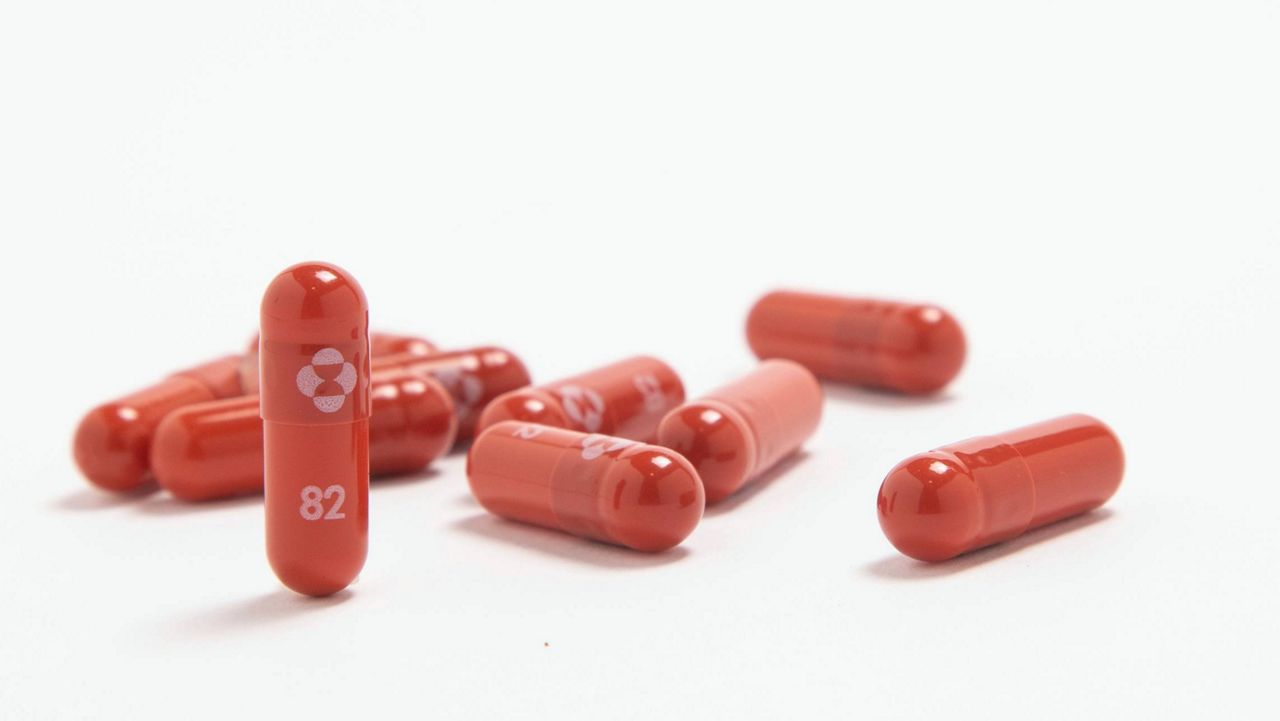Merck’s COVID-19 pill is not as effective as previously reported, the drugmaker said Friday.
What You Need To Know
- Updated clinical trial data show that Merck's COVID-19 pill, molnupiravir, is 30% effective at preventing hospitalization or death
- Interim results released last month said the pill was 50% effective
- Meanwhile Friday, the FDA said Merck’s pill is effective against the virus, but the agency will seek input from outside experts on risks of birth defects and other potential problems in pregnant women
- While Merck continues to tout the medicine as effective, the lower efficacy rate falls well short compared to a rival pill being developed by Pfizer that is said to be 89% effective against hospitalization and death
Updated clinical trial data show the antiviral medicine molnupiravir is 30% effective at preventing hospitalization or death. Interim results released last month said the pill was 50% effective.
Meanwhile Friday, the Food and Drug Administration agreed Merck’s pill is effective against the virus, but the agency will seek input from outside experts on risks of birth defects and other potential problems in pregnant women.
Merck’s update includes data on all 1,433 trial participants. The company said 9.7% of people in the placebo group were hospitalized or died from COVID-19, compared to 6.8% who took the drug. Nine deaths were reported in the placebo group, and one in the molnupiravir group.
Molnupiravir, developed in collaboration with Ridgeback Biotherapeutics, aims to treat mild to moderate COVID-19 in adults who have tested positive and are at high risk for severe cases.
“Merck and Ridgeback Biotherapeutics have conducted a rigorous development program for molnupiravir, and believe that molnupiravir has the potential to address a significant unmet medical need for an oral medicine for adults with COVID-19 who are at risk for progressing to severe COVID-19 and/or hospitalization,” a Merck news release said Friday.
While Merck continues to tout the medicine as effective, the lower efficacy rate falls well short compared to a rival pill being developed by Pfizer that is 89% effective against hospitalization or death, according to interim clinical trial data.
Shares of Merck were down 4.5% to $78.57 just after markets opened Friday.
Merck and Pfizer have both asked the FDA to grant emergency use authorization of their pills. An FDA advisory panel will meet Tuesday to discuss Merck’s application.
All COVID-19 drugs currently authorized by the FDA require an injection or IV, which limits their use. If authorized, Merck’s drug would be the first that patients could take at home to ease symptoms and speed recovery. It is already authorized for emergency use in the U.K.
Merck said its trial data found comparable adverse events in the placebo and pill groups, suggesting the treatment is safe.
However, the FDA scientists said their review, posted Friday, identified several potential risks, including possible toxicity and birth defects. Regulators also noted Merck collected far less safety data overall on its drug than was gathered for other COVID-19 therapies.
The FDA will ask its independent advisers whether the drug's benefits outweigh its risks and if its use should be restricted for pregnant women.
The agency isn’t required to follow the group’s advice.
The Associated Press contributed to this report.



